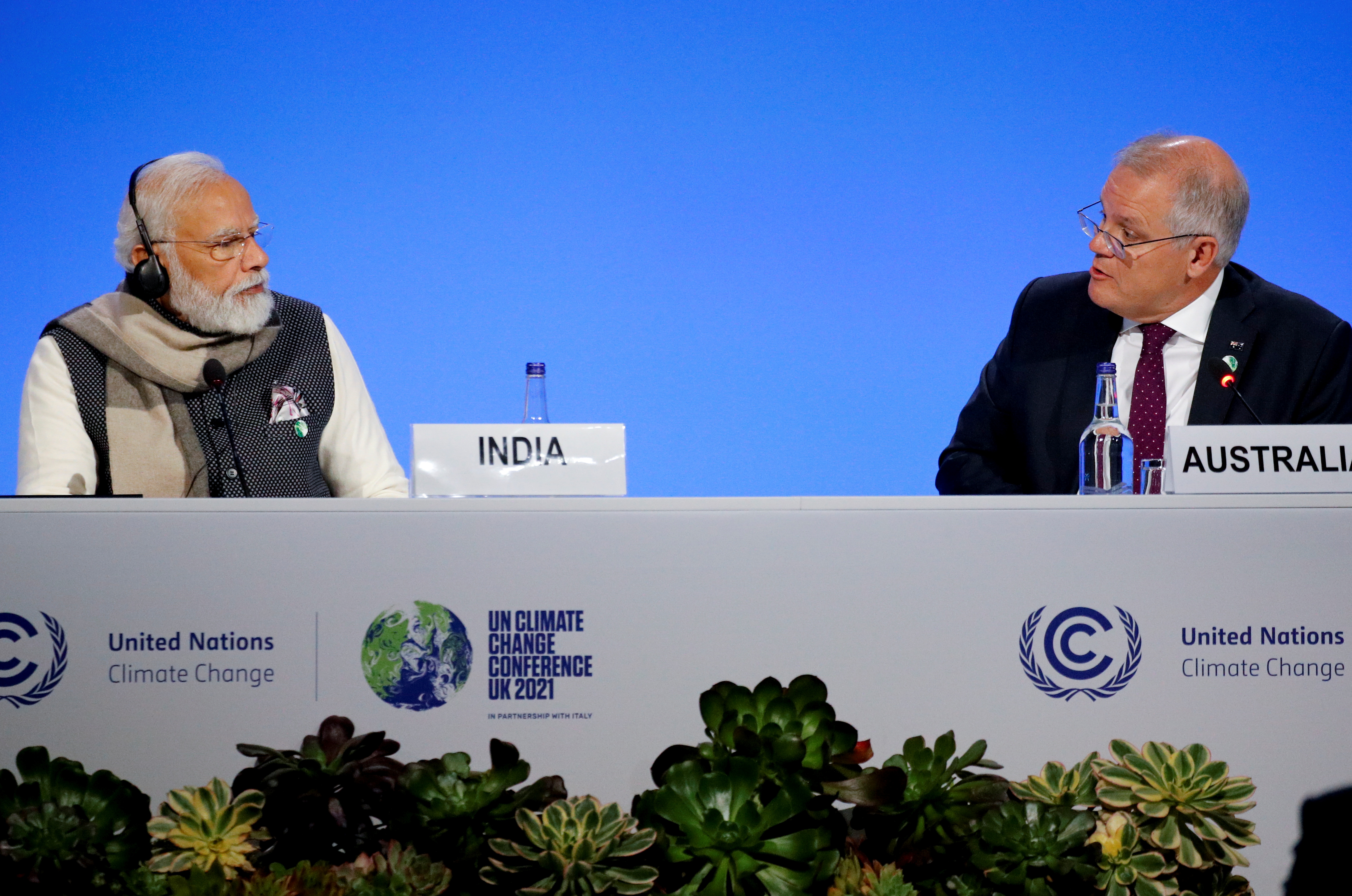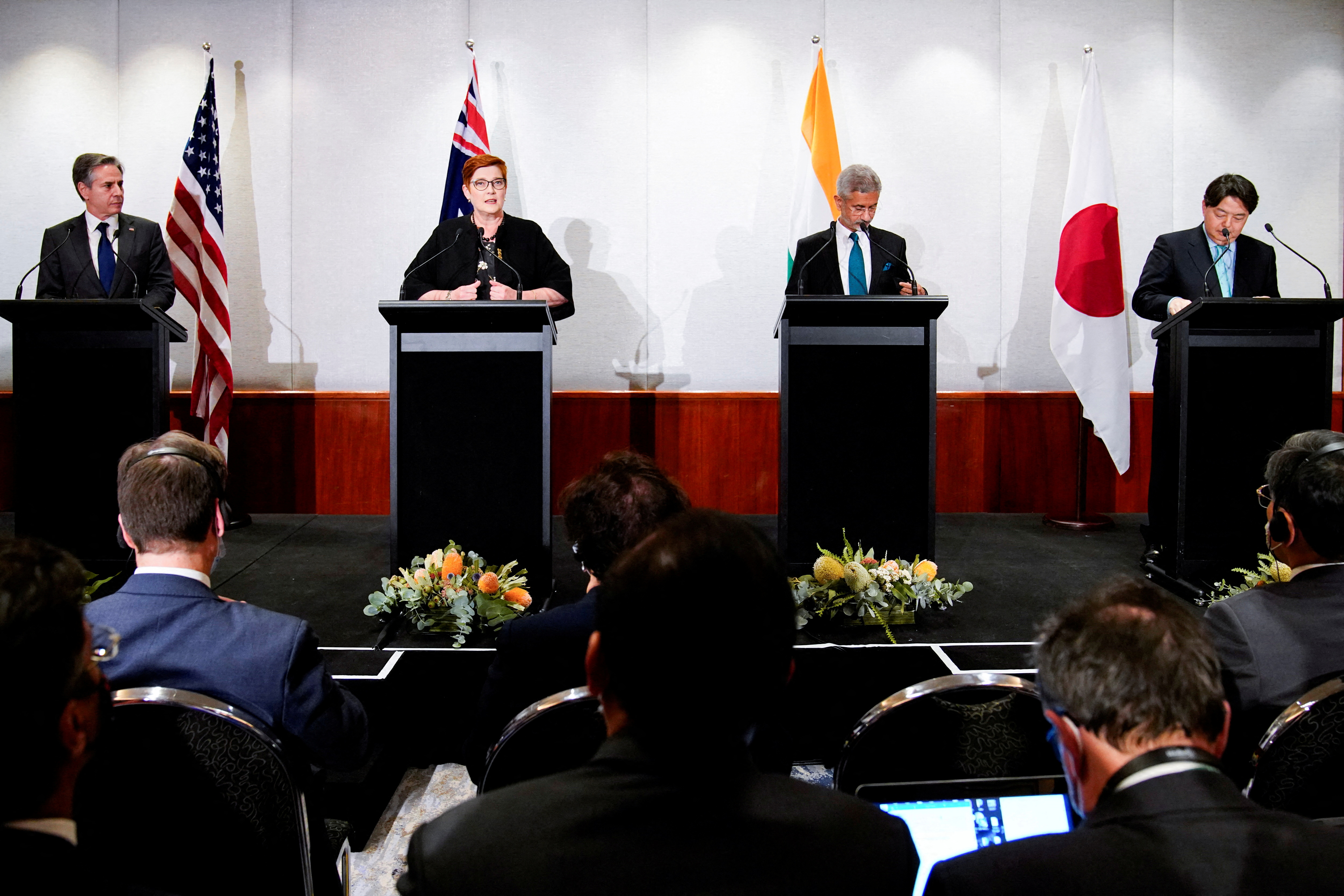India and Australia signed a historic agreement on Saturday for the next five years that aims to enhance the development of the Indo-Pacific through increased bilateral trade in key areas such as textiles, pharmaceuticals and information technology.
The treaty proposes to increase bilateral trade to $50 billion over the next five years, a figure that until now stood at 27 billion, said Indian Minister of Trade and Industry Piyush Goyal during the signing of the document.
The minister said at the meeting that “there is great potential for Indian exports in sectors such as textiles, pharmaceuticals, hospitality, gems and jewelry, and information technology” that could be beneficial to both countries.
For its part, Australia has committed to the Asian giant “in key areas of India's interest, such as education, IT (information and technology), business, professional services, health and audiovisual,” said the Indian Ministry of Commerce and Industry in a subsequent statement.

It will also “provide post-study work visas for students, quotas for chefs and yoga instructors,” as well as work and vacation visas for young professionals, the brief adds.
With this signature, India hopes that “new employment opportunities will emerge, raise the standard of living and improve the overall well-being of the people of both countries”.
India's Prime Minister Narendra Modi and his Australian counterpart Scott Morrison welcomed this historic document that “reflects the depth of mutual trust between the two countries,” said the Indian president.
“This is a turning point for our bilateral relations,” emphasized Modi, who believes that this free trade agreement allows India and Australia to “increase the resilience of supply chains and also contribute to the stability of the Indo-Pacific region.”

The historic agreement signed by both countries began to be negotiated more than a decade ago, but the process was suspended in 2015 after nine rounds. The dialogue resumed in 2020, in the face of growing pressure from China in the region and the strengthening of ties between QUAD members.
India and Australia are members of the QUAD alliance along with the United States and Japan, and both Modi and Morrison have repeatedly referred to the goal of a “free, open and inclusive” Indo-Pacific in the face of China's supposed expansionist desires in the region.
Quad leaders met in early March to assess the “implications” of the Russian invasion of Ukraine and ensure “that such events never happen in the Indo-Pacific,” Morrison recalled.
The Quad is an informal strategic forum between the United States, Japan, India and Australia that organizes regular summits, exchanges information and currently organizes joint military exercises. It was founded in 2007 at the behest of Japan and, despite a diverse fate, it has survived until in recent years it has flourished significantly.
(With information from EFE)
KEEP READING:
Últimas Noticias
Debanhi Escobar: they secured the motel where she was found lifeless in a cistern

The oldest person in the world died at the age of 119

Macabre find in CDMX: they left a body bagged and tied in a taxi
The eagles of America will face Manchester City in a duel of legends. Here are the details

Why is it good to bring dogs out to know the world when they are puppies




